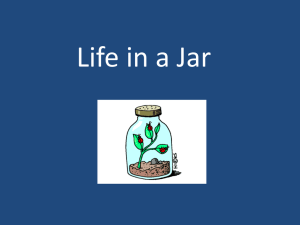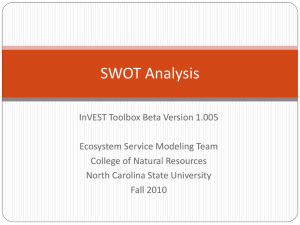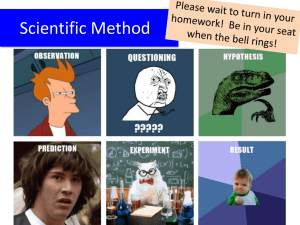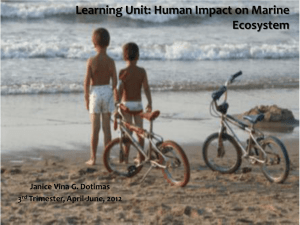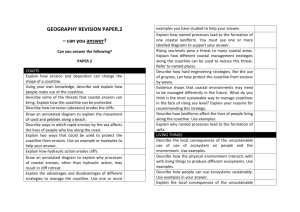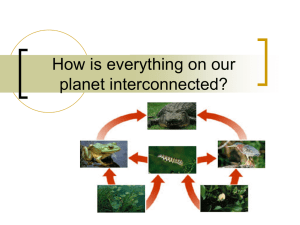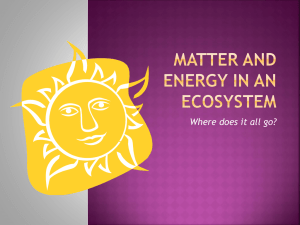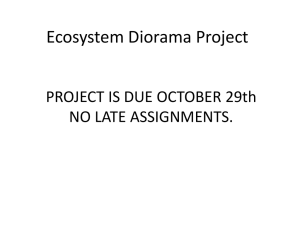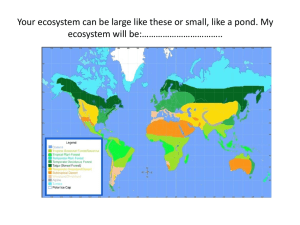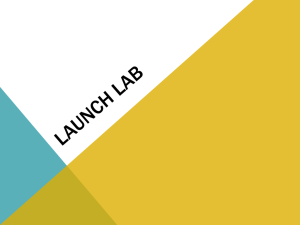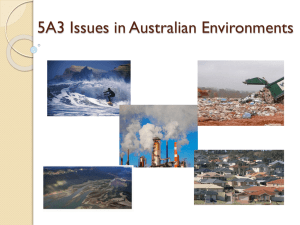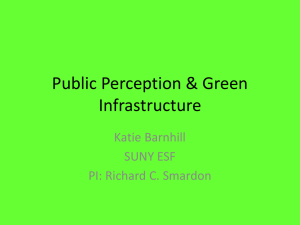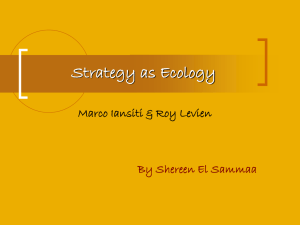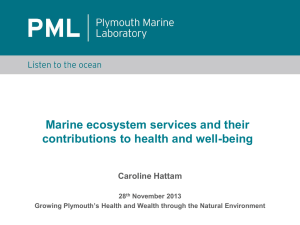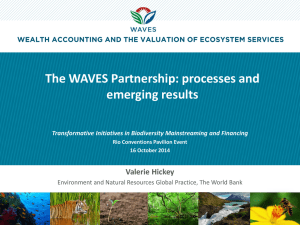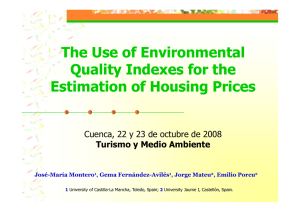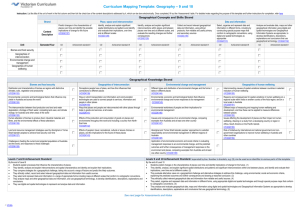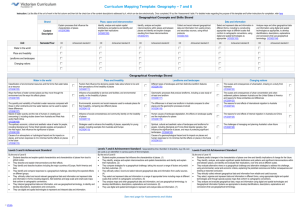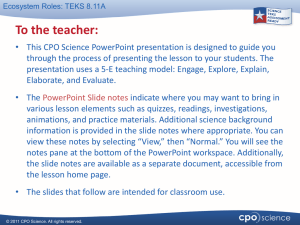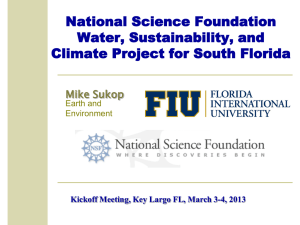Enquiry questions for KS2 fieldwork
advertisement
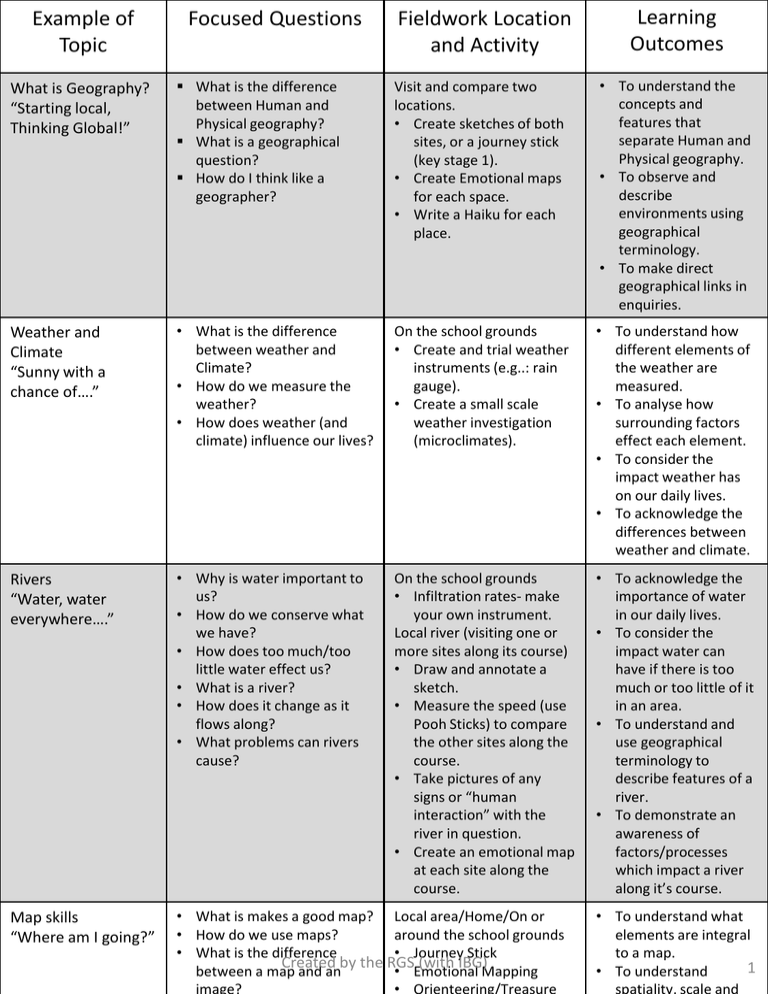
Example of Topic Focused Questions Fieldwork Location and Activity Learning Outcomes What is Geography? “Starting local, Thinking Global!” What is the difference between Human and Physical geography? What is a geographical question? How do I think like a geographer? Visit and compare two locations. • Create sketches of both sites, or a journey stick (key stage 1). • Create Emotional maps for each space. • Write a Haiku for each place. • To understand the concepts and features that separate Human and Physical geography. • To observe and describe environments using geographical terminology. • To make direct geographical links in enquiries. Weather and Climate “Sunny with a chance of….” • What is the difference between weather and Climate? • How do we measure the weather? • How does weather (and climate) influence our lives? On the school grounds • Create and trial weather instruments (e.g..: rain gauge). • Create a small scale weather investigation (microclimates). • To understand how different elements of the weather are measured. • To analyse how surrounding factors effect each element. • To consider the impact weather has on our daily lives. • To acknowledge the differences between weather and climate. Rivers “Water, water everywhere….” • Why is water important to us? • How do we conserve what we have? • How does too much/too little water effect us? • What is a river? • How does it change as it flows along? • What problems can rivers cause? On the school grounds • Infiltration rates- make your own instrument. Local river (visiting one or more sites along its course) • Draw and annotate a sketch. • Measure the speed (use Pooh Sticks) to compare the other sites along the course. • Take pictures of any signs or “human interaction” with the river in question. • Create an emotional map at each site along the course. • To acknowledge the importance of water in our daily lives. • To consider the impact water can have if there is too much or too little of it in an area. • To understand and use geographical terminology to describe features of a river. • To demonstrate an awareness of factors/processes which impact a river along it’s course. Map skills “Where am I going?” • What is makes a good map? Local area/Home/On or • How do we use maps? around the school grounds • What is the difference • Journey Stick Created by the RGS (with IBG) between a map and an • Emotional Mapping • To understand what elements are integral to a map. 1 • To understand Example of Topic Focused Questions Fieldwork Location and Activity Learning Outcomes Coasts “Oh I do love to be beside the seaside…” • • • • What is the coast? What are waves? What do waves do? What are the different landscapes found along the coastline? • How do we use the coastline? • How does the coast affect us? Local coastal area • I-Spy (identify coastal features). • Haiku poems. • Measuring Long-Shore Drift. • Field sketches. • Environmental Quality Index (EQI). • Interviews/Questionnaires . • Journey Stick. • Emotional Mapping. • To understand what key features are found in a coastal location. • To analyse the factors that create either erosional or depositional landforms. • To consider the value and management of the stretch of coastline , and make conclusions about the land use. • To understand the need for sea defences and consider their effectiveness and aesthetic appeal. Biomes/Ecosystems “Thinking like Norton the elephant…” • What is an ecosystem? • How big is an ecosystem? • What variables effect an ecosystem? • What elements interfere with a natural ecosystem? • How have human managed ecosystems? On the school grounds • Soil Survey and Microclimate survey. • Quadrat sampling: • Flora and Fauna count • Vegetation (type, height, %cover) • Erosion • Litter • Human management (Inc. Questionnaires/Interview) . • Environmental Quality Index (EQI). • Emotional mapping. • To consider factors that create an ecosystem. • To consider how humans or other factors have interrupted or altered the natural progression of the ecosystem. • To acknowledge the management and effectiveness of an environment. Settlement “Where do I live?” • Where do I live? • Why do I live here? • What is in my surrounding environment? • How does my environment compare to another? • What makes this space unique? Local town centre • Getting into character OR Question/interview a local. • Land use mapping. • Facilities survey • Environmental Quality Index (EQI). • Litter/Pollution enquiry. • To understand the spatiality and location of the local area. • To consider key geographical elements regarding the area. • To analyse data and make key conclusions regarding the land use. • To draw links between land use management and the Environmental 2 Quality Created by the RGS (with IBG)

